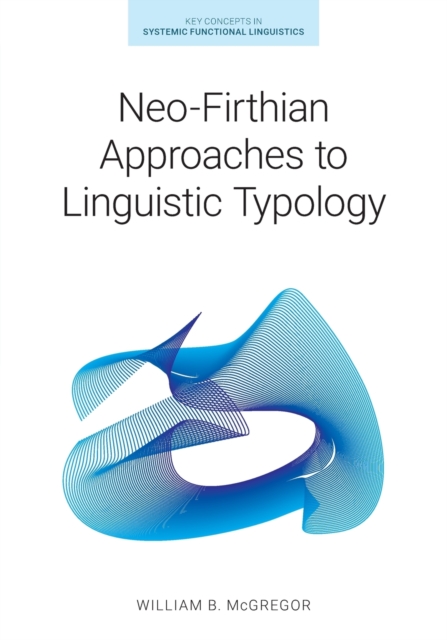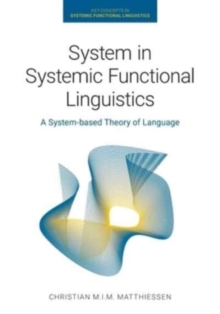
Neo-Firthian Approaches to Linguistic Typology Paperback / softback
by William B McGregor
Part of the Key Concepts in Systemic Functional Linguistics series
Paperback / softback
Description
Neo-Firthian theories — which include Systemic Functional Linguistics and its congeners — have, unlike other functionally oriented theories, engaged minimally with linguistic typology and have made little impact on the wider discipline.
This book offers a programmatic and Neo-Firthian informed typological investigation that points to potential mutual enrichments of linguistic typology and Neo-Firthian theories. On the one hand, this book identifies the inadequacies of the dominant ‘atheoretical’ approaches to linguistic typology, and shows how these can be circumvented through a firm foundation in a Neo-Firthian theoretical framework.
On the other hand, it contends that Neo-Firthian approaches must take typology seriously as a criterion of theoretical adequacy, and be able to account for the full range of grammatical phenomena and their variation across languages, as well as those features that are universal.
Case studies illustrate this argument through a selection of grammatical phenomena — in particular, grammatical relations, the noun phrase, complex sentence constructions, optional case marking and grammatical classification. This book will be of interest to typologists, and well as to linguistics working within Systemic Functional Linguistics and other functional theories.
Information
-
Only a few left - usually despatched within 24 hours
- Format:Paperback / softback
- Pages:240 pages, 10 figures
- Publisher:Equinox Publishing Ltd
- Publication Date:15/06/2021
- Category:
- ISBN:9781781796672
Other Formats
- Hardback from £70.75
£24.95
£22.69
Information
-
Only a few left - usually despatched within 24 hours
- Format:Paperback / softback
- Pages:240 pages, 10 figures
- Publisher:Equinox Publishing Ltd
- Publication Date:15/06/2021
- Category:
- ISBN:9781781796672










